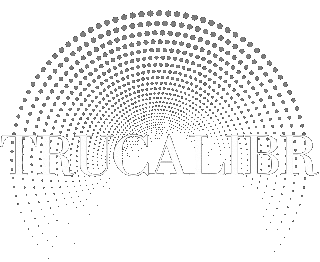Introduction:
According to a survey by Reputation Institute, companies with a strong reputation outperform those with a poor reputation by an average of 16% in terms of market capitalization. Similarly, a study by Harvard Business Review found that individuals with a positive reputation are more likely to receive job offers, promotions, and opportunities for career advancement.
Anecdotally, consider the impact of a well-respected public figure or influencer whose endorsement can sway consumer decisions and shape public opinion. Conversely, a single misstep or scandal can irreparably damage a reputation that took years to build.
Key Points to Cover:
In this comprehensive guide, we’ll explore the following key aspects of building and enhancing reputation:
1. Understanding the Importance of Reputation
2. Defining Your Personal Brand
3. Cultivating Integrity and Authenticity
4. Building Professional Credibility
5. Leveraging Social Media and Online Presence
6. Managing Reputation in a Crisis
7. Continuous Improvement and Reputation Maintenance
In-depth Exploration of Each Key Point:
1. Understanding the Importance of Reputation
A strong reputation is more than just a nice-to-have; it’s a strategic asset that can open doors to various opportunities. Whether you’re an entrepreneur seeking investors, a professional seeking career advancement, or an individual seeking to build trust and influence, your reputation precedes you.
Research by the World Economic Forum highlights the direct correlation between a company’s reputation and its ability to attract top talent, retain customers, and maintain a competitive edge. Similarly, individuals with a strong personal reputation are more likely to be viewed as trustworthy, respected, and influential in their respective fields.
2. Defining Your Personal Brand
Your personal brand is the unique combination of values, skills, and attributes that shape how others perceive you. It’s the foundation upon which your reputation is built. To define your personal brand, start by identifying your core values, strengths, and passions. Consider what sets you apart and what you want to be known for.
Once you’ve defined your personal brand, consistently communicate and reinforce it through your actions, communication style, and online presence. Consistency is key to establishing a cohesive and recognizable brand that resonates with others.
3. Cultivating Integrity and Authenticity
Integrity and authenticity are the bedrock of a strong reputation. By consistently aligning your words and actions with your values and principles, you build trust and credibility with others. Authenticity also fosters deeper connections and resonates with those who value honesty and transparency.
In contrast, a lack of integrity can quickly erode trust and damage your reputation. As Warren Buffett famously said, “It takes 20 years to build a reputation and five minutes to ruin it. If you think about that, you’ll do things differently.”

4. Building Professional Credibility
In the professional realm, credibility is paramount. It’s the foundation upon which others perceive your expertise, capabilities, and trustworthiness. To build professional credibility, focus on honing your skills, seeking continuous education, and demonstrating a track record of success.
Participate in professional associations, attend industry events, and seek opportunities to share your knowledge and expertise through speaking engagements, publications, or mentorship. Building a network of respected peers and colleagues can also enhance your credibility by association.
5. Leveraging Social Media and Online Presence
In the digital age, your online presence is an extension of your reputation. Social media platforms, professional networking sites, and personal websites provide opportunities to showcase your expertise, engage with your audience, and carefully curate your digital footprint.
Consistent and thoughtful content creation, engagement with your community, and proactive reputation management can help shape a positive online narrative. However, exercise caution and maintain professionalism, as a single misstep or ill-advised post can have far-reaching consequences.
6. Managing Reputation in a Crisis
Even the most carefully cultivated reputations can be tested by crises or controversies. Effective crisis management is crucial to mitigating damage and preserving your hard-earned reputation.
In times of crisis, transparency, accountability, and swift action are paramount. Acknowledge mistakes, take responsibility, and outline concrete steps to address the issue and prevent future occurrences. Consistent and open communication with stakeholders is also essential to maintaining trust and credibility.
7. Continuous Improvement and Reputation Maintenance
Building and enhancing reputation is an ongoing process that requires continuous effort and improvement. Regularly assess your reputation by seeking feedback from trusted sources, monitoring online sentiment, and staying attuned to shifts in your industry or community.
Embrace a growth mindset and view setbacks or criticism as opportunities for improvement. Continuously refine your skills, expand your knowledge, and adapt to changing landscapes to maintain relevance and respect.

Additional Resources and Further Reading:
– “Reputation Rules: Strategies for Building Your Company’s Most valuable Asset” by Daniel Diermeier (https://www.hbs.edu/faculty/Pages/item.aspx?research=9973)
– “The Reputation Game: The Art of Changing How People See You” by David Waller and Rupert Younger (https://www.theruggedreputationgroup.com/the-reputation-game/)
– “Reputation Management: The Key to Successful Public Relations and Corporate Communication” by John Dalton and Monica Garrett (https://www.routledge.com/Reputation-Management-The-Key-to-Successful-Public-Relations-and-Corporate/Dalton-Croft/p/book/9780415512442)
– “Reputation.com” (https://www.reputation.com/) – A platform for managing and monitoring online reputation.
Practical Tips and Actionable Advice:
1. Define and consistently communicate your personal brand across all platforms.
2. Seek feedback and honest assessments from trusted sources to identify areas for improvement.
3. Proactively manage your online presence by regularly updating professional profiles and monitoring online mentions.
4. Cultivate a network of respected peers and mentors who can vouch for your expertise and character.
5. Engage in thought leadership activities, such as writing, speaking, or teaching, to establish yourself as an authority in your field.
6. Promptly address negative feedback or criticism with professionalism, empathy, and a solution-oriented approach.
7. Continuously invest in personal and professional development to stay relevant and credible.
Conclusion:
A strong reputation is a powerful differentiator that can unlock opportunities for personal and professional success. By understanding the importance of reputation, defining your personal brand, cultivating integrity and authenticity, building professional credibility, leveraging social media and online presence, effectively managing crises, and continuously improving and maintaining your reputation, you can establish yourself as a trusted and respected figure in your field.
Remember, your reputation is a reflection of who you are and what you stand for. It takes time, effort, and unwavering commitment to build, but it can be damaged in an instant by a single misstep or lapse in judgment.
Take charge of your narrative, embrace transparency and accountability, and consistently strive to uphold the values and standards that you wish to be known for. By doing so, you’ll not only enhance your reputation but also pave the way for lasting success, influence, and meaningful impact.
Are you ready to embark on the journey of building and enhancing your reputation? The first step starts with a commitment to excellence, integrity, and continuous growth. The path may be challenging, but the rewards are invaluable.







